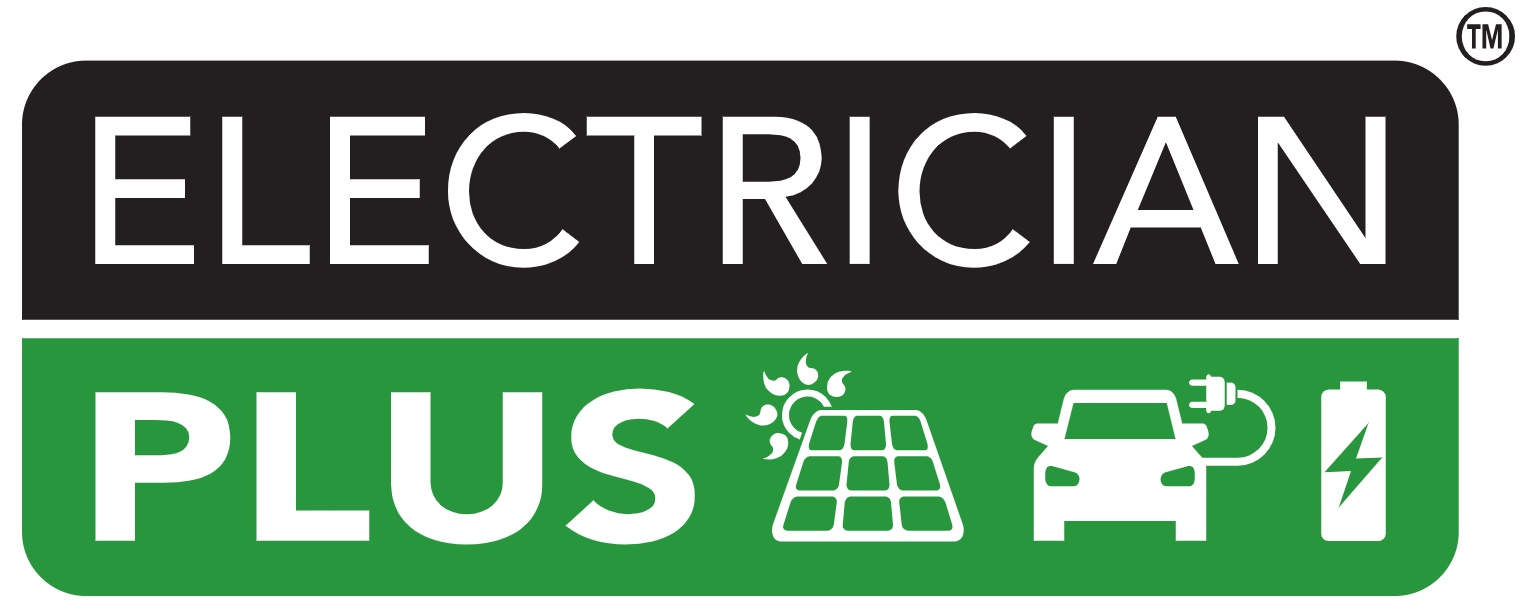Electrician Plus
In August 2023, the new brand concept ‘Electrician Plus’ was launched by The Electrotechnical Skills Partnership (TESP) to highlight how the role of a qualified electrician is central to the installation of low carbon and renewable technologies.
Adequate understanding of electrical scientific theory and principles and demonstrable occupational competence are critical for the safe installation of technologies such as solar photovoltaic (PV) panels, battery storage systems and electric vehicle charging points (EVCP). The core competence of a qualified electrician is the foundation from which to upskill and train in these areas.
The Electrician Plus model highlights how once someone reaches qualified electrician status, all that is needed is top-up CPD and qualifications in specific new technologies, to enable safe, compliant and competent installations.
Awarding bodies such as City & Guilds, EAL and BPEC have been leading the way in this area with their updated EVCP and solar qualifications, designed so that only electricians who meet the industry Level 3 standard can enrol on these courses, helping safeguard against non-qualified and under-qualified personnel undertaking renewable installations and the potential safety and fire risk this poses.
The new Electrician Plus logo will be used to endorse relevant qualifications to show they are industry approved in terms of content and assessment, providing robust upskilling for qualified electricians who have a solid foundation of electrical skills and knowledge.
“The boom of low carbon technologies has led to some ill-informed claims that a whole new set of narrow occupations are needed around low carbon technology installation – this is simply not the case,” said Ruth Devine, Chair of TESP. “A significant proportion of activity is firmly within the skills remit of qualified members of the existing workforce; electricians are leading the way in this area.”
“The Electrician Plus model highlights that, once armed with core electrical competence, CPD and additional qualifications can be undertaken in a variety of low carbon technologies, helping electricians and electrical contractors bring added value to their business and customers.
“Working with industry and awarding bodies we want to ensure that installations are carried out competently and are safe, high-quality and effective. Look out for the Electrician Plus badge to be sure the qualification is industry-recognised and approved.”
Andrew Eldred, ECA Director of Workforce and Public Affairs, said:
“Electrical apprentices and trainees study and practice for years for a reason. Installing and integrating electrical systems safely and efficiently demands a high degree of knowledge, skill and experience. This is as true for solar PV, EV charging and energy storage systems as it is for all other electrically based technologies.
“Enthusiasm for net zero should not blind us to the fact that installers and integrators of low carbon systems need to be appropriately qualified and competent in the first place. Upskilling training in particular technologies can help individual electricians supplement this fundamental trade competence, but can never replace it. Electrician PLUS offers practitioners, customers and wider society a straightforward benchmark for singling out those qualifications that align with this obvious yet essential principle.”
www.electricalcareers.co.uk/electrician-plus
This article originally appeared on the ECA website on 8 August 2023.
--ECA
[edit] Related articles on Designing Buildings
Featured articles and news
Managing building safety risks
Across an existing residential portfolio, a client's perspective.
ECA support for Gate Safe’s Safe School Gates Campaign.
Core construction skills explained
Preparing for a career in construction.
Retrofitting for resilience with the Leicester Resilience Hub
Community-serving facilities, enhanced as support and essential services for climate-related disruptions.
Some of the articles relating to water, here to browse. Any missing?
Recognisable Gothic characters, designed to dramatically spout water away from buildings.
A case study and a warning to would-be developers
Creating four dwellings... after half a century of doing this job, why, oh why, is it so difficult?
Reform of the fire engineering profession
Fire Engineers Advisory Panel: Authoritative Statement, reactions and next steps.
Restoration and renewal of the Palace of Westminster
A complex project of cultural significance from full decant to EMI, opportunities and a potential a way forward.
Apprenticeships and the responsibility we share
Perspectives from the CIOB President as National Apprentice Week comes to a close.
The first line of defence against rain, wind and snow.
Building Safety recap January, 2026
What we missed at the end of last year, and at the start of this...
National Apprenticeship Week 2026, 9-15 Feb
Shining a light on the positive impacts for businesses, their apprentices and the wider economy alike.
Applications and benefits of acoustic flooring
From commercial to retail.
From solid to sprung and ribbed to raised.
Strengthening industry collaboration in Hong Kong
Hong Kong Institute of Construction and The Chartered Institute of Building sign Memorandum of Understanding.
A detailed description from the experts at Cornish Lime.
























